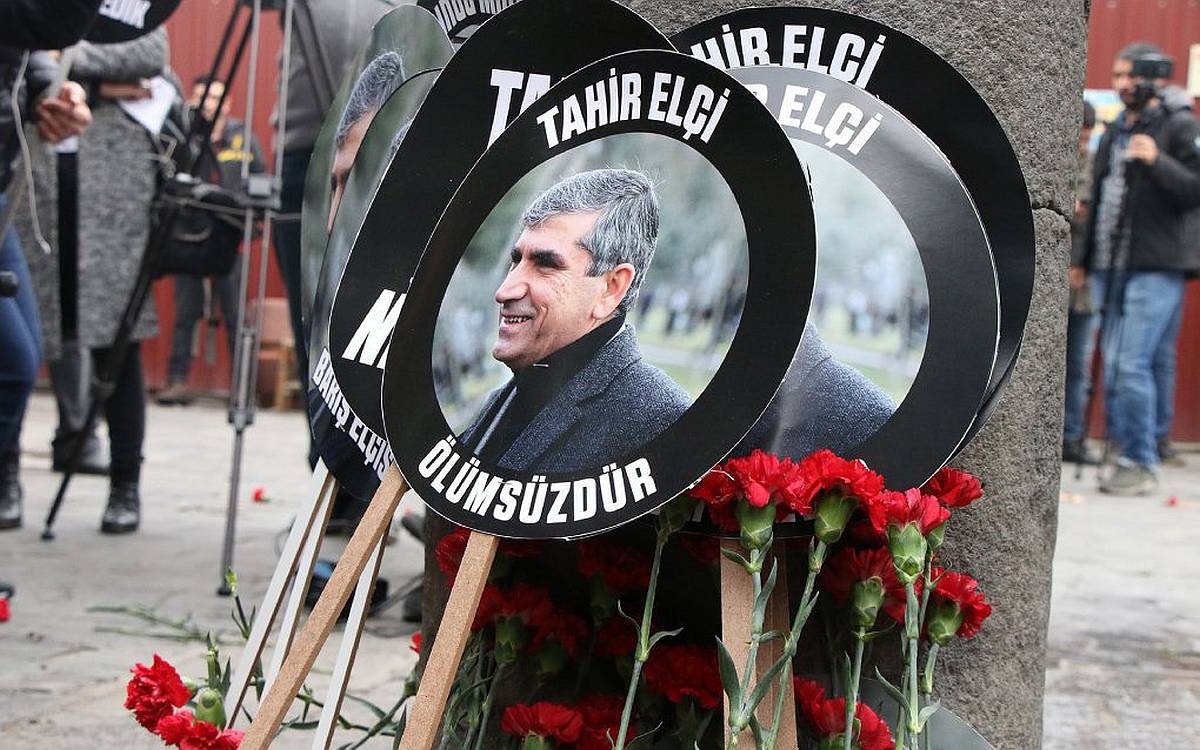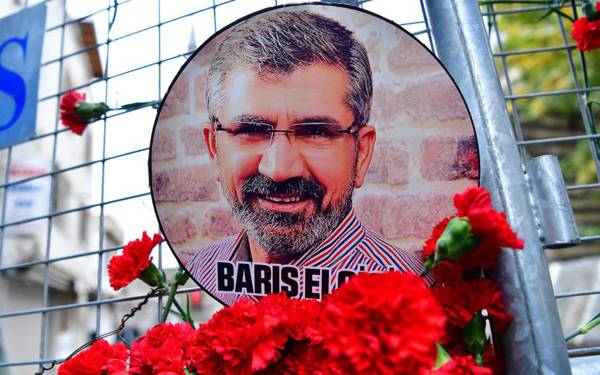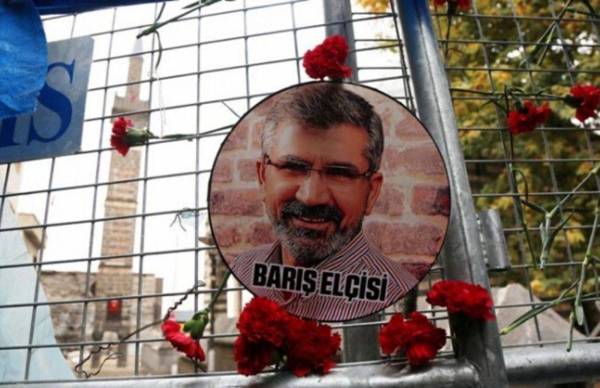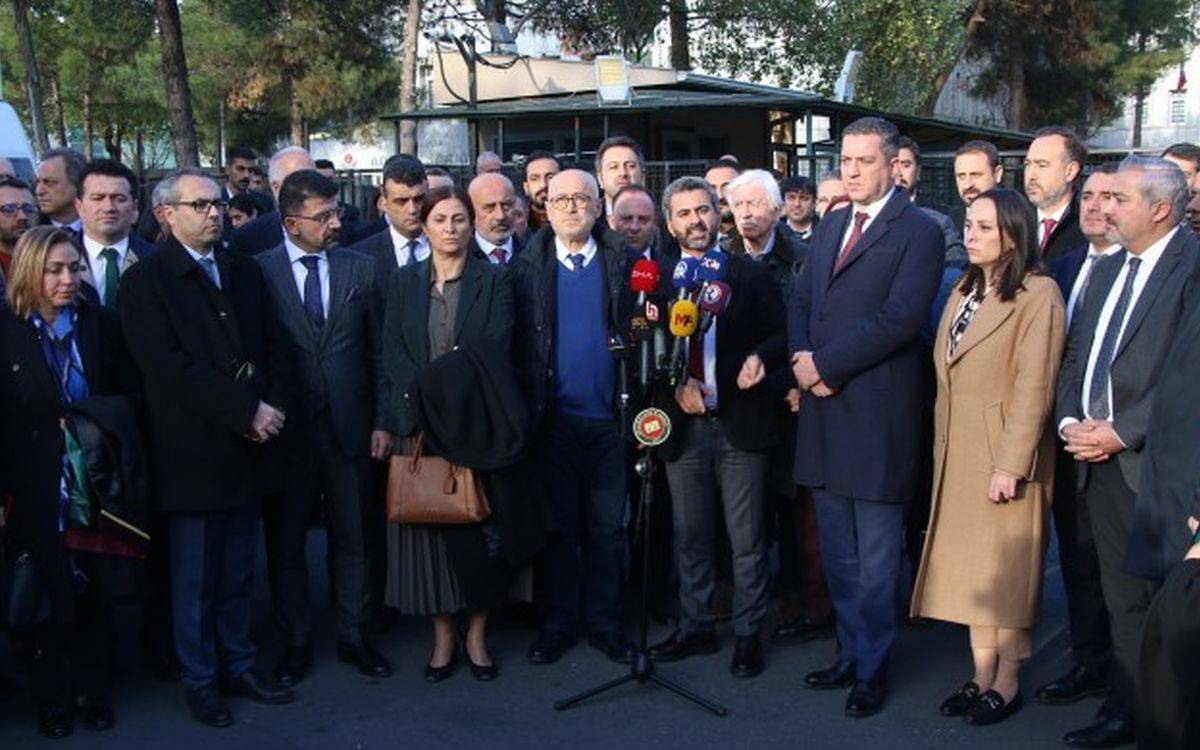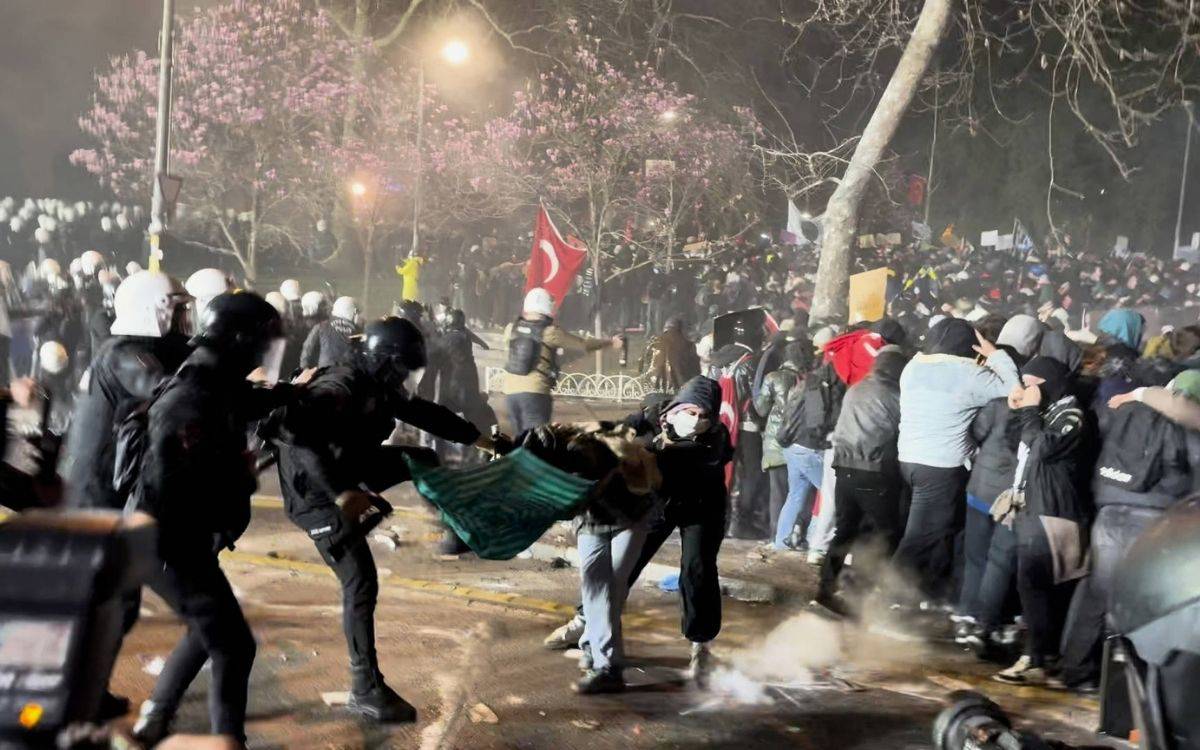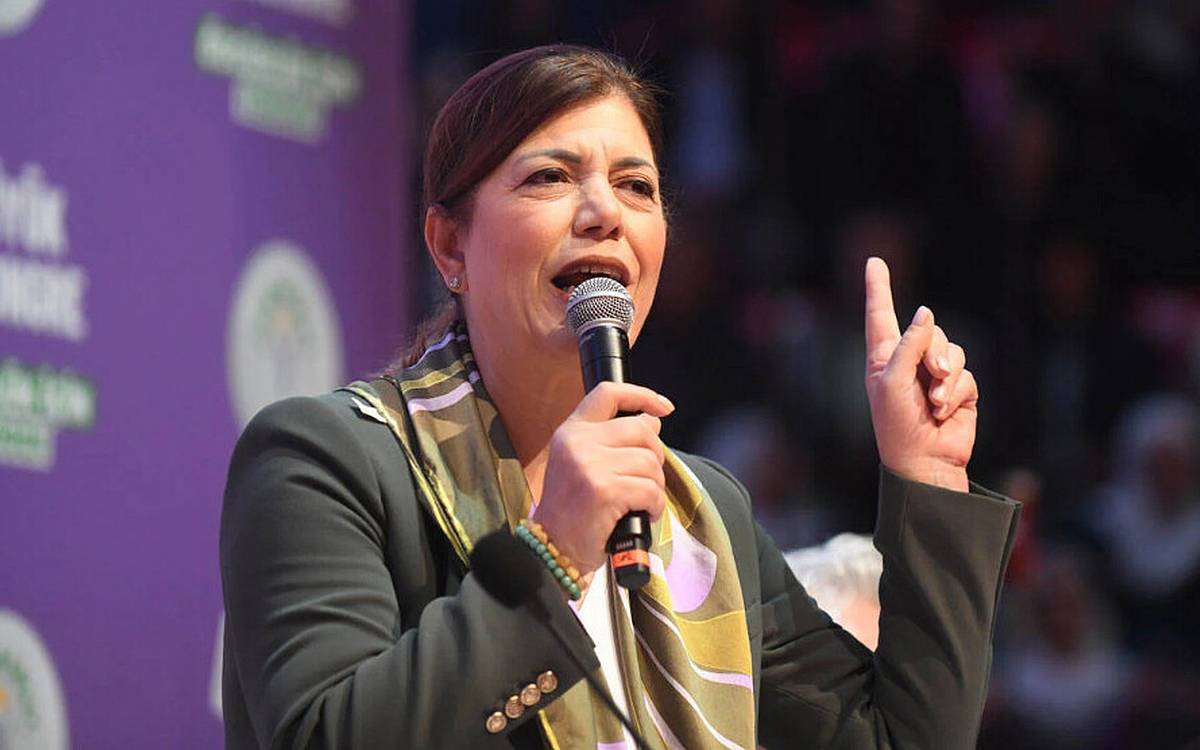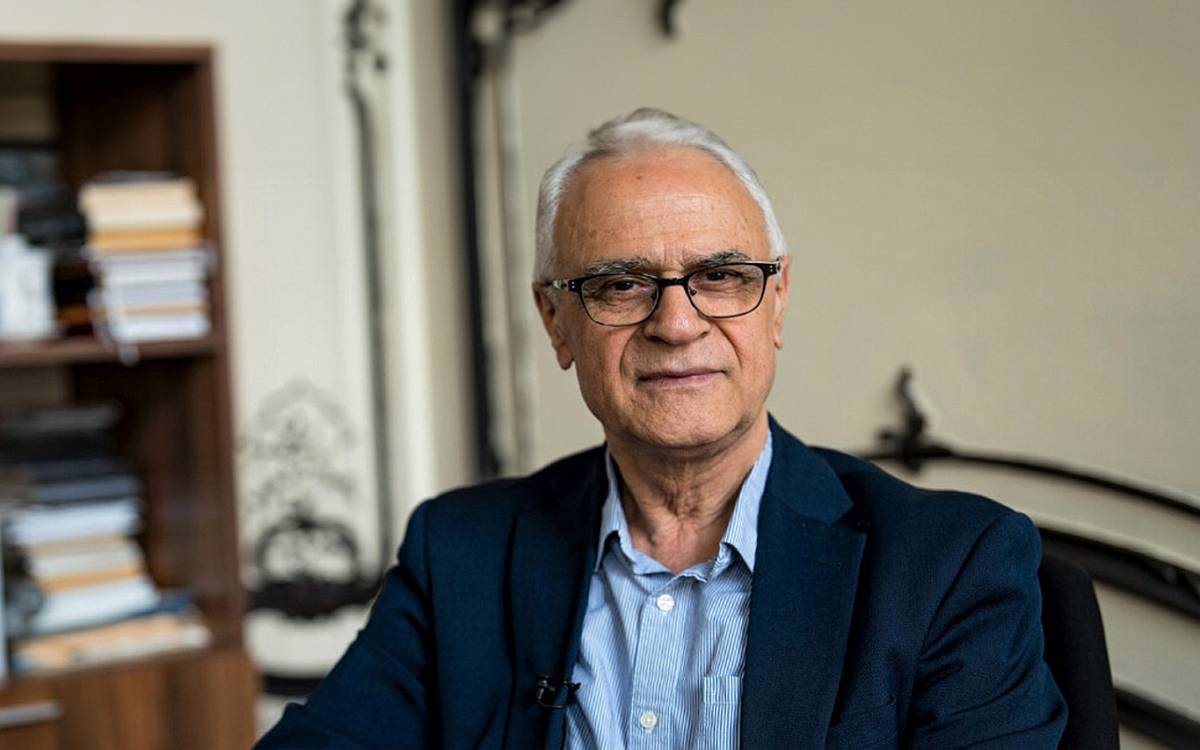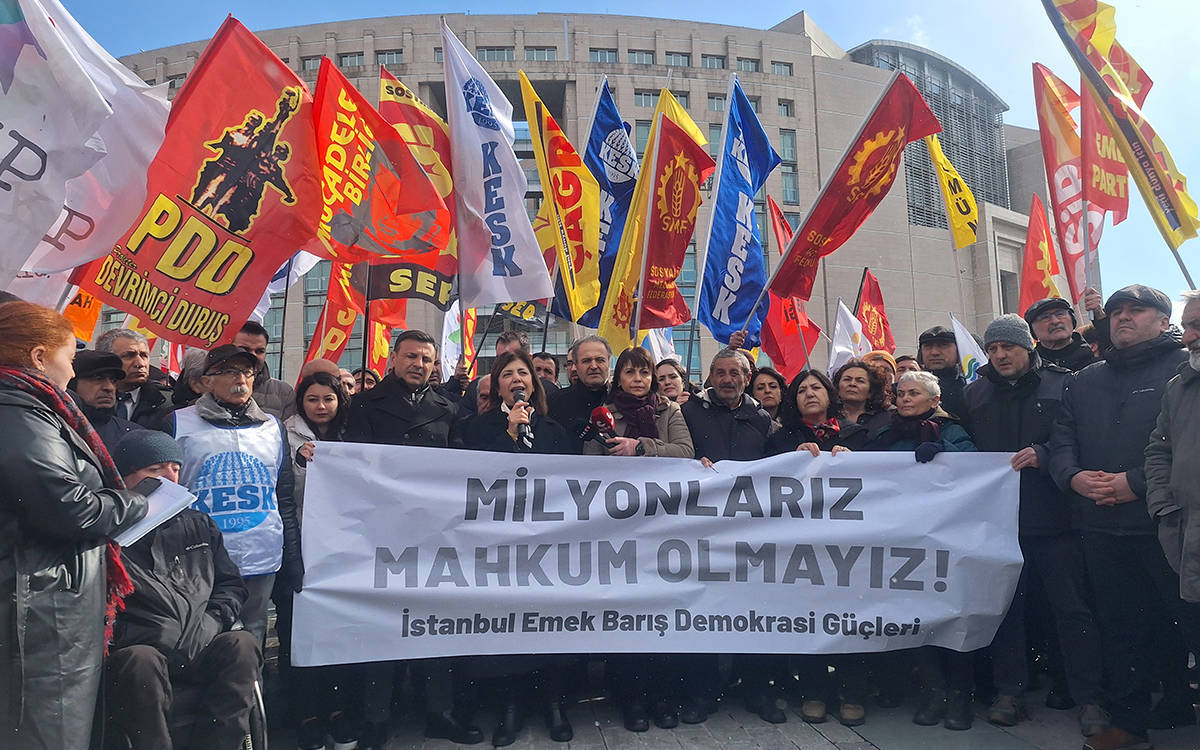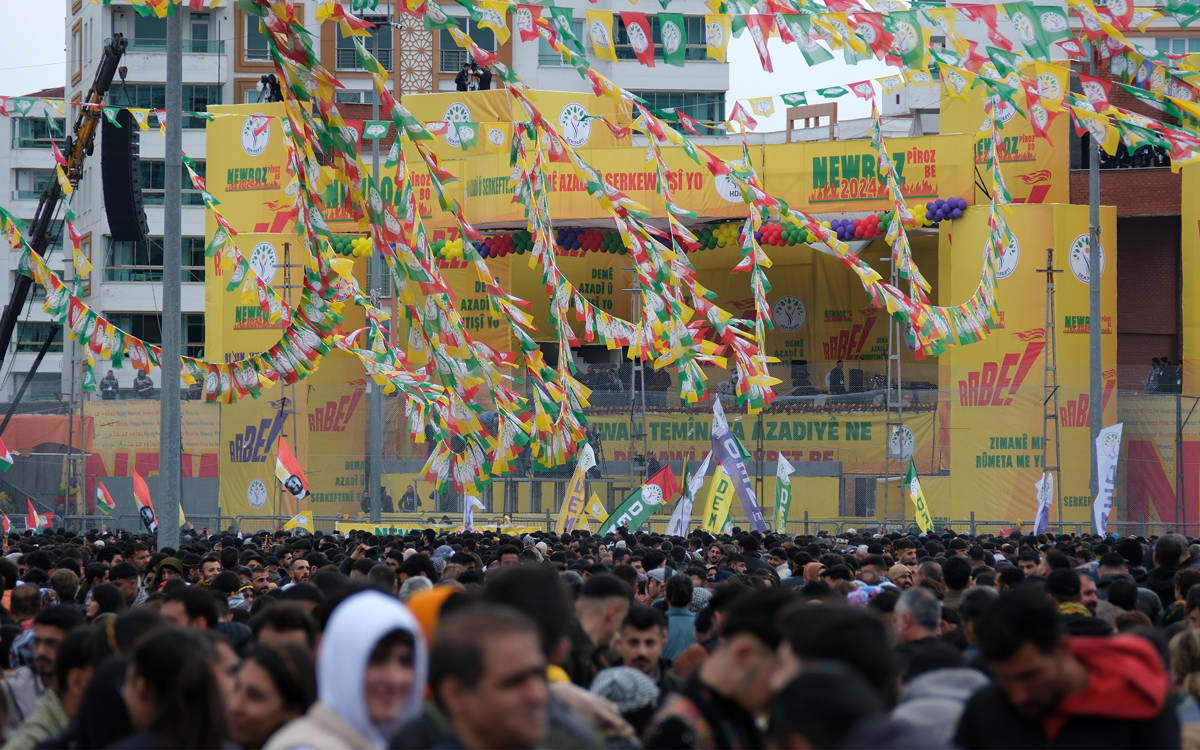It is the eighth anniversary of the assassination of Tahir Elçi, the former President of the Diyarbakır Bar Association, in front of the historic Four-Legged Minaret in the city. Elçi had served as a lawyer in cases related to massacres committed by the state in Lice, Kızıltepe, JİTEM, Cizre, Kuşkonar, and Roboski.
The current president of the Diyarbakır Bar Association, Nahit Eren talked to bianet and described the challenges they faced in the trial related to the killing of Elçi and the course of the case.
Murder of Tahir Elçi
Eight years ago, on October 14, 2015, Tahir Elçi, during a television broadcast where he participated, responded to journalist Ahmet Hakan's question, "Is the PKK a terrorist organization?" by saying, "The PKK is not a terrorist organization. It is an armed political movement."
After uttering these words, he became a target and received death threats. It didn't take long for the Bakırköy Public Prosecutor's Office to swiftly initiate an investigation against him on charges of "making propaganda for a terrorist organization," issuing a warrant for his arrest.
He was detained on October 19 and brought to Istanbul. He was released after giving his statement in court on October 20.
However, the repercussions of his words did not subside.
It was a time when conflicts in Kurdish regions spilled into cities, causing casualties and damage to historical structures.
On the morning of November 28, 2015, they were going to make a statement as the Bar Association in front of the Four-Legged Minaret in the Sur District of Diyarbakır, calling for "the guns to fall silent."
Before some time passed since their gathering, the sound of gunfire was heard.
Ten minutes after pointing to the damaged feet of the Four-Legged Minaret, Tahir Elçi fell face down, a gunshot to his head.
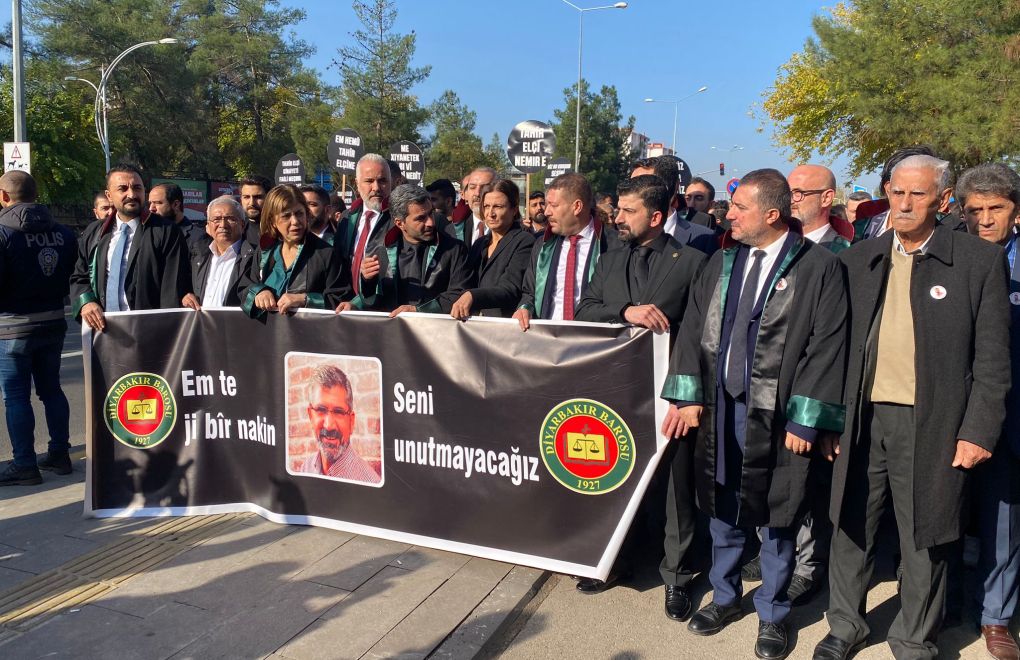
Lawyer, human rights defender Tahir Elçi commemorated on 7th anniversary of murder
Trial begins five years later
Many things were said about who targeted Elçi.
It was said that he was killed "by the bullet of the organization's militants," and it was expressed that "it is not certain which weapon the bullet came from." The crime scene investigation was conducted five months later. The investigation was left in limbo, and there was an attempt to leave his death unresolved...
However, with the efforts of the lawyers, an indictment was prepared on March 20, 2020, five years after his murder, and the trial began on October 5, 2020.
Colleagues and human rights advocates commemorated Elçi yesterday (November 28), and in today's hearing, they will demand the prosecution of the perpetrators.
So, what has happened in the trial that has been ongoing for three years? What has been done, and how much progress has been made?
Nothing carried out in the investigation
Diyarbakır Bar Association President Nahit Eren explained to bianet.
He began by saying, "From the moment Tahir Elçi was assassinated, nothing that should have been done in a criminal investigation was carried out."
Indicating that even the crime scene investigation was not conducted promptly, Eren said that there was resistance to collecting evidence.
Eren told the following to bianet:
"For three and a half years, there was not a single suspect in the case. Until the Diyarbakır Bar Association sent footage obtained from dozens of cameras at the crime scene to Forensic Architecture, affiliated with the University of London. We submitted the report from there as evidence to the case file.
After the presentation of this report, the prosecution began to take the statements of three police officers as suspects, and based on this, an indictment was prepared. However, we are still not in a different position from the first day; we are still not at a different point in the investigative process. We have not made progress in illuminating the murder. During the investigation, the prosecution was rejecting our requests. Now, we are facing rejection by the court.
Their intention is to conclude the case with a mediocre indictment, but we want all aspects of that period to be considered, both before and after. We renew our demand in every session for the exposure of all the focal points behind it."
Bullet core not found, footage missing
According to the information provided by the Bar Association president, the crime scene investigation was not conducted properly and was left incomplete, leading to the inability to find the most crucial evidence, the bullet core. The 12-second footage captured by the law enforcement units at the crime scene on that day, corresponding to the moment of the incident, is also missing. Eren says, "We have not been able to access the original of that recording. But if there is no recording showing the exact moment of the murder, there is external intervention."
Eren also mentions that there were four cameras at the Mardin Kebap House on the street where the Four-Legged Minaret is located. He claims that only the camera facing the crime scene was reported as malfunctioning, and its recordings were not presented.
Davutoğlu should be heard at the court
Another significant issue is the failure to hear witnesses. Eren describes how the then-Prime Minister Ahmet Davutoğlu characterized Tahir Elçi's killing as a 'political assassination.' "If the country's prime minister defines it as a political assassination, of course, he should be heard as a witness," he says. However, the court initially accepted this request but later withdrew this decision a few days before the next hearing.
When Davutoğlu visited the Diyarbakır Bar Association during that time, he stated that "this murder is a dark political assassination." When asked about the definition of a political assassination, he responded that they know better about what happened in the 90s and they should understand what he meant. Eren says, "Therefore, Davutoğlu, who knew that period best, could have changed the course of the trial if he had been heard in court, but someone didn't want that."
According to the information conveyed by the Bar Association president, there are individuals who reported the events of that day to the prosecution through anonymous letters. However, the court also rejected the hearing of these informants.
Eren emphasized that they will not allow the Tahir Elçi Case to end in impunity and stated that they will continue their persistent struggle to illuminate the case.(RT/PE)






